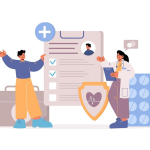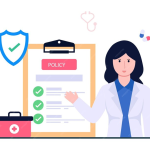
Role Of Human Resources In Delivering Quality Healthcare
Human Resources in Healthcare is the backbone of quality medical services. It ensures the right staff is hired, trained, and managed effectively. Skilled HR professionals enhance patient care, reduce turnover, and maintain compliance. A well-structured HR department improves workplace morale, optimizes workforce efficiency, and enhances healthcare outcomes.
Importance of Human Resources in Healthcare
HR professionals ensure hospitals, clinics, and medical institutions run smoothly. They handle recruitment, staff retention, and compliance. Effective HR management leads to better patient satisfaction and workforce productivity.
Recruitment and Staffing in Healthcare
- Hiring Qualified Healthcare Professionals
Finding the right talent is crucial. HR teams screen resumes, conduct interviews, and verify credentials. They ensure only skilled professionals join the healthcare team.
- Reducing Staff Shortages
HR tackles workforce shortages by offering competitive salaries, benefits, and training programs. They focus on retention to reduce turnover rates.
- Diversity and Inclusion in Hiring
A diverse workforce improves patient care. HR ensures fair hiring practices and equal opportunities.
Employee Training and Development
- Continuous Learning Programs
Healthcare evolves constantly. HR provides training on new medical procedures, technology, and patient care strategies.
- Compliance Training
HR ensures staff follows medical regulations, patient privacy laws, and ethical guidelines.
- Leadership Development
HR trains future healthcare leaders. Strong leadership improves decision-making and workplace culture.
Enhancing Employee Satisfaction in Healthcare
- Workplace Culture and Morale
HR fosters a positive work environment. Employee satisfaction leads to better patient care.
- Mental Health and Well-being Support
HR offers wellness programs to reduce stress and burnout.
- Recognition and Rewards
Acknowledging hard work boosts morale. HR creates reward systems for healthcare professionals.
HR’s Role in Compliance and Legal Issues
- Ensuring Policy Adherence
HR enforces healthcare laws, including HIPAA and OSHA regulations.
- Handling Workplace Disputes
HR resolves conflicts, preventing disruptions in patient care.
- Employee Rights and Fair Treatment
HR protects workers’ rights, ensuring fair policies and ethical workplace practices.
Technology and Human Resources in Healthcare
- HR Software for Staff Management
HR uses advanced software for scheduling, payroll, and performance tracking.
- Telemedicine and Virtual Training
HR integrates digital training methods, improving efficiency.
- Data-Driven Decision Making
HR analyzes workforce trends to improve staffing and patient care.
Crisis Management and Emergency Preparedness
- Handling Healthcare Crises
HR prepares staff for emergencies, such as pandemics or natural disasters.
- Disaster Recovery Plans
HR ensures facilities have backup plans for unforeseen events.
Conclusion
Human resources in healthcare play an indispensable role in delivering quality care. From recruitment and training to managing performance and fostering teamwork, HR ensures that healthcare institutions run smoothly and patients receive the best possible treatment.
As the industry continues to evolve, HR must remain adaptable, ready to meet new challenges, and seize new opportunities to improve both staff and patient outcomes.
Frequently Asked Questions?
What Is The Role Of Human Resources In Healthcare?
Human resources in healthcare manage recruitment, training, workforce planning, and performance management. They ensure staff are well-trained, satisfied, and able to provide quality care to patients.
Why Is Training Important In Healthcare?
Training is essential in healthcare because it ensures that staff stay updated on the latest medical procedures, technologies, and regulations. Continuous learning helps improve patient outcomes and reduces the risk of errors.
How Does HR Ensure Staff Well-Being In Healthcare?
HR supports staff well-being by creating a healthy work environment, offering wellness programs, and providing mental health resources. This helps reduce burnout and improves job satisfaction.
What Challenges Do Human Resources Face In Healthcare?
HR in healthcare faces challenges like staffing shortages, high turnover rates, budget constraints, and managing employee burnout. They must find creative solutions to these issues while maintaining quality patient care.
Enhance Patient Care and NABH Compliance with LazyMonkey
LazyMonkey is your all-in-one solution for improving patient care, retaining more patients, and meeting NABH standards. Our powerful QR-based feedback tool enables you to capture real-time insights from patient feedback, discharge surveys, staff and doctor evaluations, and clinical research, while also streamlining inter-departmental communication.
Transform your healthcare facility today - reach out to us at hello@lazymonkey.in, or request a demo here!
Elevate Your Restaurant Experience with LazyMonkey
LazyMonkey’s QR-based feedback system helps you gather real-time insights from customers, track satisfaction levels, and enhance the dining experience. Get instant feedback on your menu, service, and ambience, and make data-driven improvements to boost repeat customers and reviews.
Improve your restaurant today – reach out to us at hello@lazymonkey.in, or request a demo here!
Empower Student Engagement and Campus Improvement with LazyMonkey
LazyMonkey offers a seamless way to gather student feedback, track satisfaction, and enhance campus life. From course evaluations to dorm feedback, our QR-based solution makes it easy to capture valuable insights and improve student retention.
Upgrade your university experience – contact us at hello@lazymonkey.in, or request a demo here!
Streamline Feedback and Drive Performance Across Your Enterprise/Franchise with LazyMonkey
Whether you manage one or multiple locations, LazyMonkey’s QR-based feedback system helps you gather real-time employee and customer feedback. Improve operational efficiency, track satisfaction, and make data-driven decisions to enhance brand consistency and growth.
Transform your franchise today – reach out to us at hello@lazymonkey.in, or request a demo here!
Enhance Customer Satisfaction and Service Standards in Banking with LazyMonkey
LazyMonkey empowers banks to capture real-time feedback from clients across branches. Improve customer experience, assess service quality, and ensure regulatory compliance with our QR-based solution, helping you retain clients and meet banking standards.
Elevate your bank’s customer care – contact us at hello@lazymonkey.in, or request a demo here!
Boost Customer Engagement and Mall Satisfaction with LazyMonkey
LazyMonkey’s QR-based feedback tool enables you to collect feedback from shoppers, track satisfaction, and enhance the mall experience. Gather insights on store services, cleanliness, and entertainment to create an unmatched customer journey.














